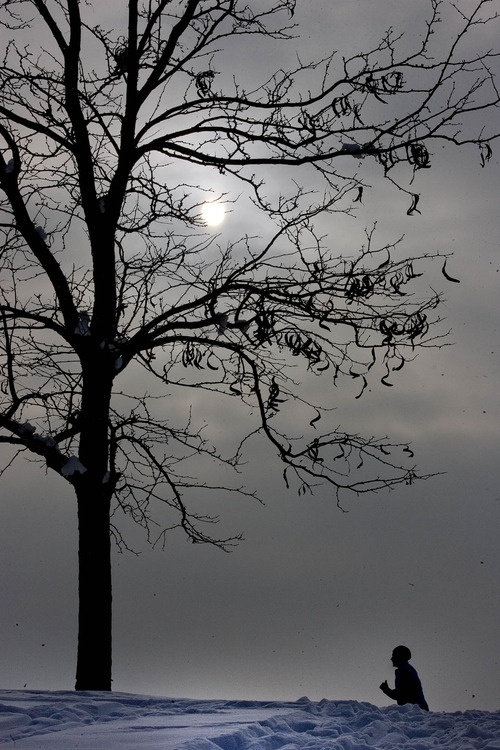This is an archived article that was published on sltrib.com in 2014, and information in the article may be outdated. It is provided only for personal research purposes and may not be reprinted.
Northern Utah remains under a health alert from high soot counts, with little relief in sight as the inversion continues to trap emissions in the valleys.
Salt Lake and Davis counties were in the worst shape Monday, with lung-busting particulate counts exceeding the federal standard by about 82 percent. Cache County exceeded the standard by about 50 percent.
Other parts of northern Utah were approaching the level considered unhealthy for sensitive people. While Salt Lake, Davis and Cache counties all had "orange" rated — or unhealthy — air, Weber, Box Elder, Utah, Uintah, Tooele and Duchesne counties all had "yellow" or moderate air quality. The poor ratings prompt mandatory action days, on which people are banned from wood-burning and urged to drive less.
Of all the counties that the Utah Division of Air Quality reports about on its website, only Washington County had "green" or healthy air Monday.
The division does not expect any of its color-coded ratings to change through at least Wednesday.
The bad air days this week contribute to an already unhealthy winter. Hardly six weeks into the inversion season, the Salt Lake Valley area has already endured 21 mandatory action days as of Monday.
Last season saw the highest air pollution levels in a decade, when the Salt Lake Valley had 35 mandatory action days.
A weak storm system might provide some relief by Thursday. The storm, coming out of the northwest, is forecasted to arrive in northern Utah on Wednesday night. There is not much moisture in it — the National Weather Service in Salt Lake City predicts only a 20 percent chance of rain and snow — but the cold front will also bring some wind that could weaken the inversion, said weather service meteorologist Linda Cheng.
The storm system is not expected to affect Southern Utah much, if at all, according to the forecast.
By a 3-to-1 margin, Utahns favor stricter air pollution standards on industry, according to a recent survey commissioned by The Salt Lake Tribune.
As far as wood burning, air-quality advocates recently urged the Utah Air Quality Board to consider regulating wood burning year round. The board has formed a working group to look into the issue.
— The Associated Press contributed to this story.
Twitter: @mikeypanda



